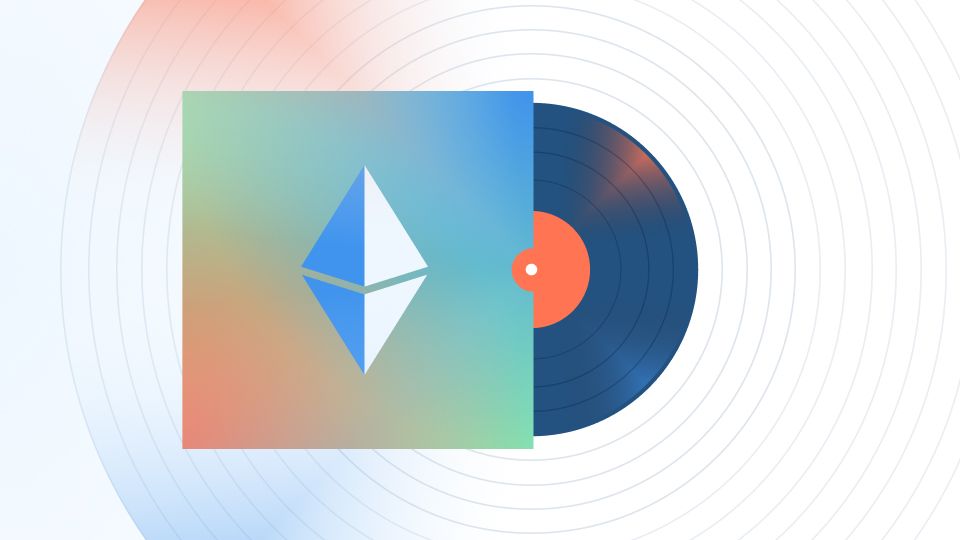
The non-fungible token (NFT) continues to transform multiple industries across the business world. The functionality of NFTs remains relatively simple. It provides a mechanism to identify ownership of an asset residing in a digital or physical form. The music industry in particular is embracing the opportunities presented by NFTs. This could prove to be transformational for musicians and listeners as news about musicians receiving low royalty rates from streaming services like Spotify, Apple Music, and Tidal appears regularly.
Sadly, more music fans prefer streaming than paying for CDs and downloadable albums, while the supposed vinyl revival remains mostly a fad. Because of this situation, earning enough money is a struggle for musicians, especially with live shows disappearing in the wake of COVID-19. Thus, NFTs offer an opportunity for bands to engage their audiences with perks or ownership of rare tracks, album art, concert tickets, and other related content, all boasting the possibility of increased revenue.
With NFTs, cryptocurrency, and blockchain still emerging, there are a lot of promising applications and growth opportunities for the music industry. So let’s take a closer look at this still-dawning relationship between NFTs and the music industry.
In 2021, with the pandemic in full force and the live concert industry effectively shuttered, musicians and their management companies looked for other means for generating earnings. As noted earlier, an NFT provides the means to identify ownership for a variety of music-related content. These include songs, lyrics, albums, cover art, and more.
Once the live music scene reawakens, NFT-enabled concert tickets, VIP passes, as well as meet and greets are also valid options for driving engagement and revenue. Last year, the rock band Kings of Leon released their new album as an NFT. They included three different NFTs as part of the release.
One provided a special version of the album, including special cover art and a vinyl copy. The second included special live show perks, while the third focused on unique audio-visual content. Notably, the band only sold the NFTs for two weeks after its release, ultimately creating scarcity.
While Kings of Leon also released the album digitally, on vinyl, and compact discs, the exclusive perks only existed on the NFT versions. This emphasizes that NFTs aren’t a replacement for physical media. Instead, they serve to boost engagement and generate earnings for the artist and their record company. One example of a notable NFT marketplace, Lostboy NFT, focuses on music-related offerings.
They also provide content related to the art world. Lostboy uses a smart NFT supporting multiple types of content depending on the means for access. For example, an audio smart NFT might provide additional content in PDF format when opened with a browser or PDF reader. So now let’s take a high-level look at three ways the NFT remains poised to transform the music world.
Even with the recent loss in revenue due to listeners switching to streaming instead of buying physical copies of albums, musicians traditionally feel underpaid and ripped-off by record companies. NFTs and blockchain technology provide the ability to make sales reporting more honest. Also, this emerging tech allows bands to sell NFTs directly to their fanbase. Expect this to be a potential boon for independent bands not on major labels.
It’s an approach providing bands and artists more control over revenue from their distribution networks. Since streaming networks pay so little per individual stream, artists need tens of millions of streams per year to earn a living wage. Leveraging NFTs to control ownership of their content ensures a better revenue stream, something more akin to the era where CDs, vinyl records, and cassettes generated significant earnings.
Remix culture continues to dominate the music industry, with collaborations providing the means for artists to gain additional exposure with the cross-pollination of fanbases. In many cases, a remix from a popular DJ takes a relatively unknown musician to another stratosphere of popularity.
Even seeing two or more industry giants working together on an album or remix project offers the potential for buzz and sales eclipsing the individual fan bases of the artists involved. In short, remixes and collaborations remain a great way to drive fan engagement. Not surprisingly, NFTs remain highly compatible with this music industry strategy. The collaborations don’t even need to match two musical artists.
For example, a variety of NFT releases combine music with digital art, offering improved exposure for both the musician and digital artist. Record companies are also using upgradeable NFTs to incentivize remix artists and fans to build upon a musician’s original work. The music artist retains copyright control and earnings over these newfangled remixes.
Using NFTs to create scarcity remains one of the most relevant features of this nascent technology. Again, this concept dovetails nicely with the music industry, where collectors spend exorbitant amounts on rare vinyl and other items related to music history as well as its present.
As an example, simply releasing a limited number of NFTs for a bonus track from a popular artist’s new album powerfully drives the value of each NFT. Collecting remains one of the most pleasurable aspects of music for fans. Ticket stubs, rare bonus tracks, and more all served to attract collectors and drive value throughout the history of the music industry.
The NFT simply takes that concept well into the 21st Century. In an era where musicians struggle to earn money from streaming, NFTs provide a multifaceted mechanism to engage fans and drive more spending. If your company wants to take advantage of the massive growth of NFTs, blockchain, and cryptocurrencies, connect with the experienced technical team at Gigster.
We boast top-shelf skills in the latest tech innovations as well as experience in building and managing exceptional development teams. Schedule a meeting with us to discuss your organization’s idea and how partnering with us increases your chances of success.